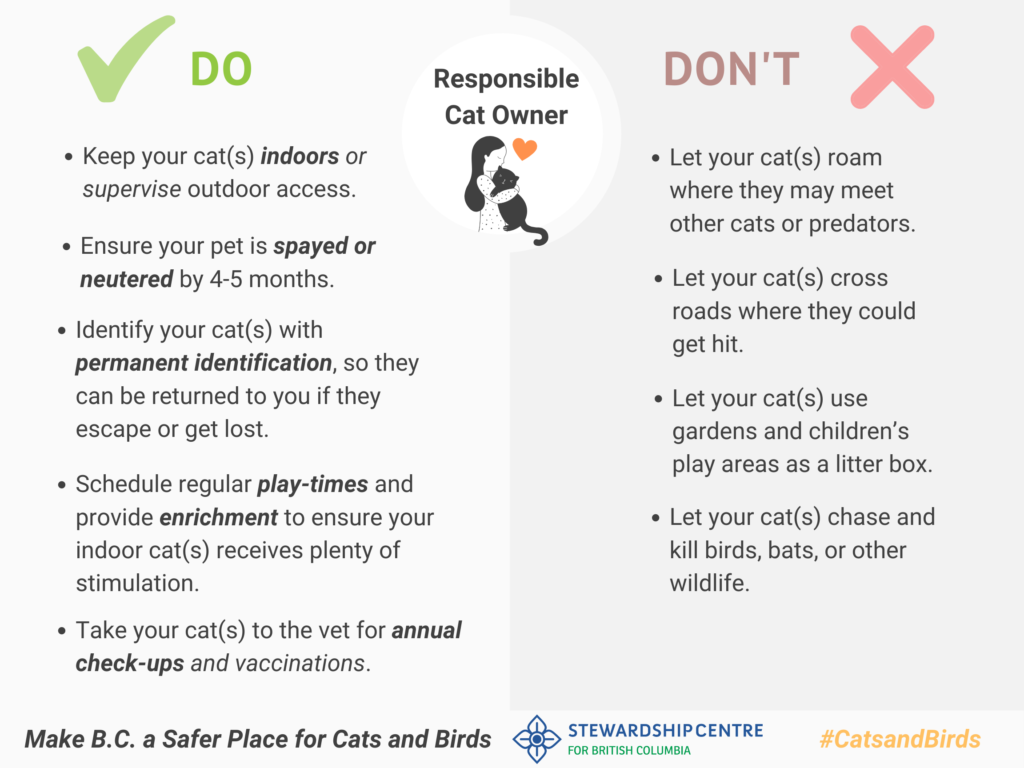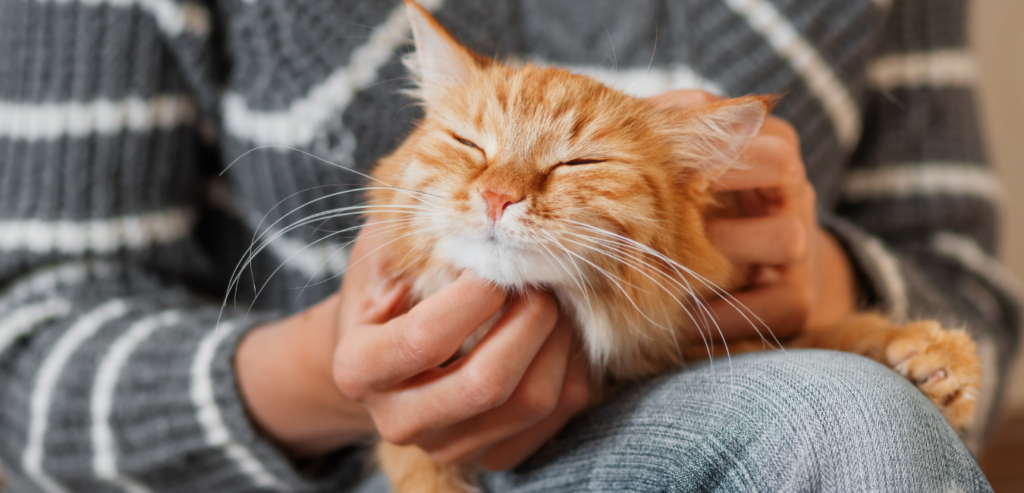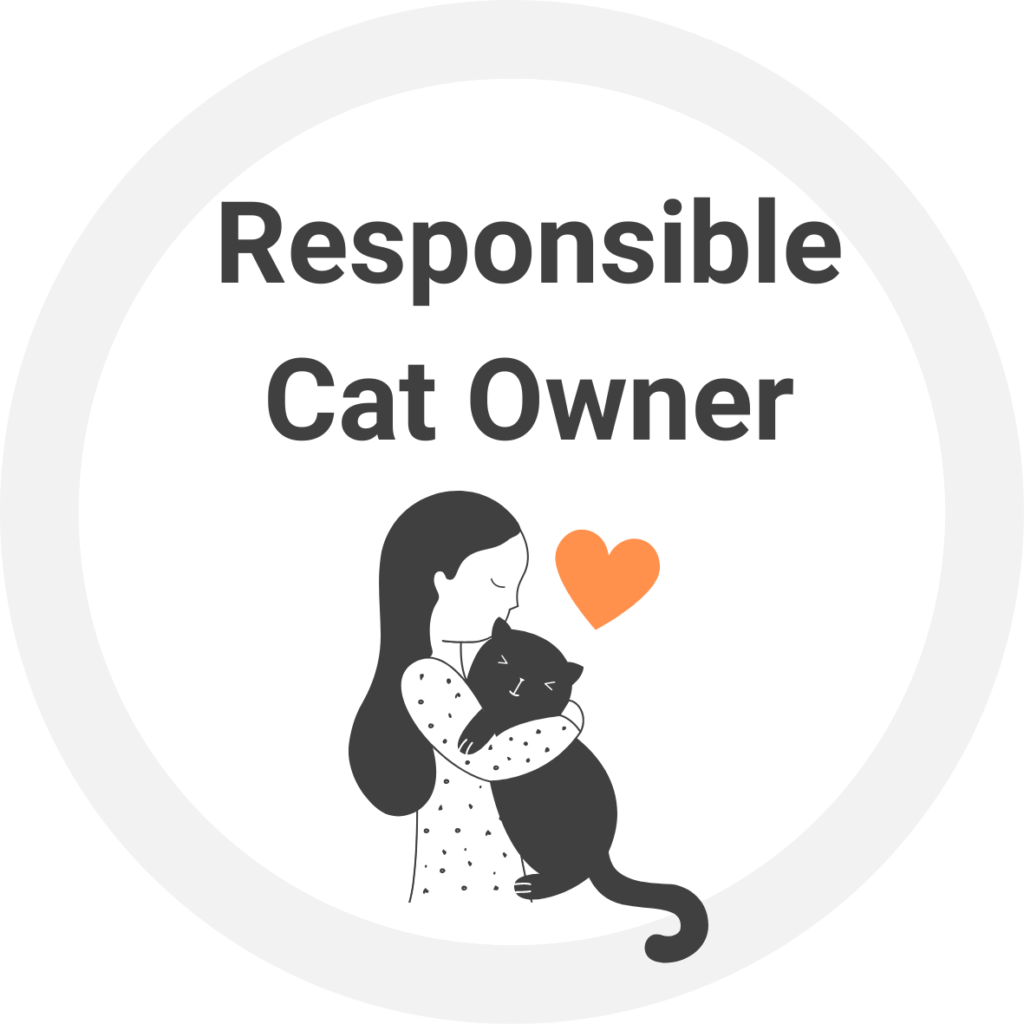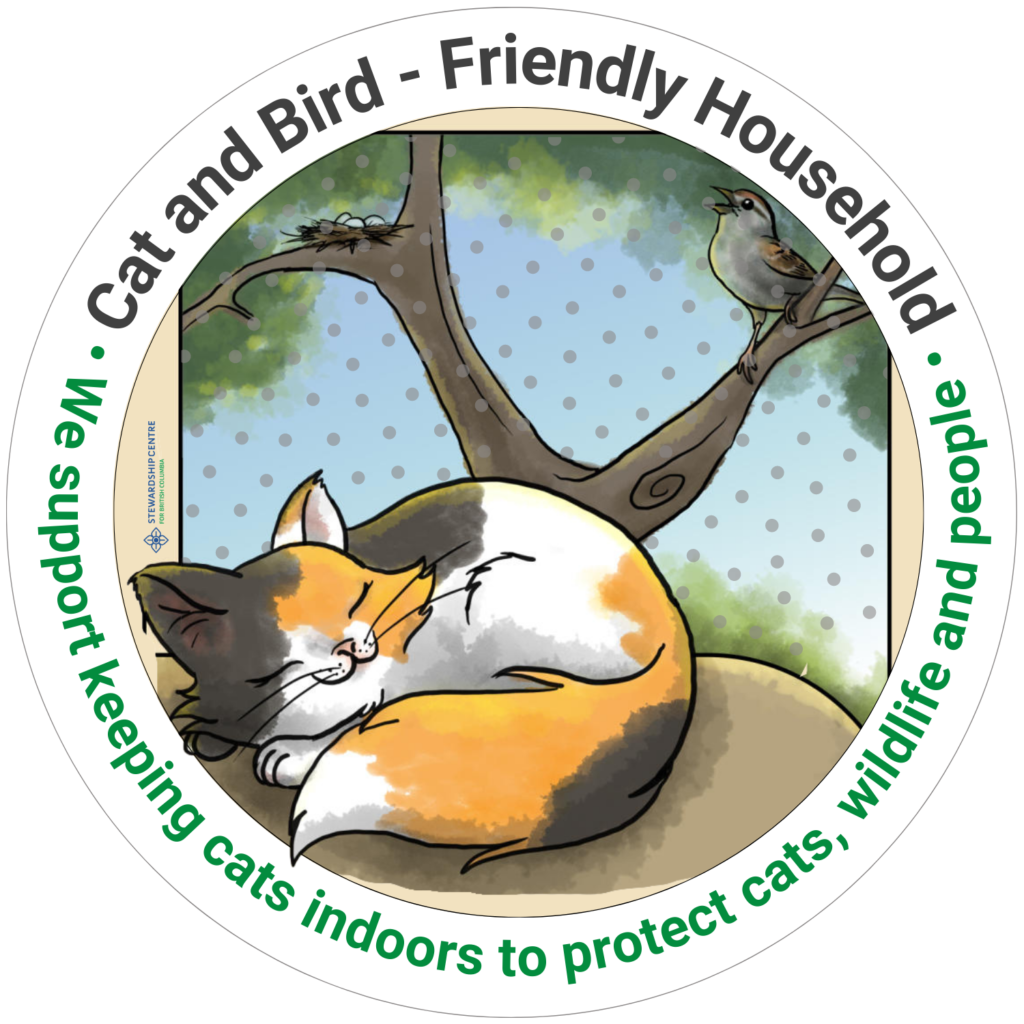Cats and Birds | Responsible Cat Ownership
What is responsible cat ownership?
Being a good guardian isn’t just about keeping your cat fed and healthy. It’s also your job to keep your cat safe and be responsible for your pet’s behaviour.
Roaming cats face many risks including road mortality, unwanted pregnancy, predators, toxins, diseases and parasites passed on from the environment or other animals as well as trauma and injuries from wildlife encounters and cat fights. Indoor lifestyle and outdoor supervision of cats are key in addressing these issues and cat welfare concerns such as cat overpopulation and feral cat colonies.
The Stewardship Centre for BC recommends you keep your cat indoors, supervise outdoor access and adopt the tips below. It’s better for cats and better for birds, bats and other wildlife.

Voice of Experts
Animal welfare organizations all over the world have created guidelines for responsible pet ownership. Even though there might be some differences between them, the main practices of keeping cats happy, healthy and safe are similar among the organizations. Below are position statements and recommendations for pet owners from 5 different animal welfare groups.

BC SPCA
Position Statement on Cat Welfare
The BC SPCA is dedicated to promoting the health and welfare of cats, and celebrating the close bond and mutual relationship between people and their companion cats. Through education and advocacy, the BC SPCA works to raise the profile and intrinsic worth of cats to encourage society to take responsibility for cats in their communities.
The BC SPCA states that guardians are expected to provide their cats with a good quality of life based on the following 5 Freedoms:
- Freedom from hunger and thirst
- Freedom from pain, injury, and disease
- Freedom from distress
- Freedom from discomfort
- Freedom to express behaviours that promote well-being.
American Veterinary Medical Association (AVMA)
The AVMA states that “owing a pet is a privilege, but the benefits of pet ownership come with responsibilities”.
They recommend pet owners adhere to 6 important rules:
- Commit to the relationship for the life of your pet(s)
- Invest appropriate time, money and care for your pet(s)
- Obey local bylaws in caring for and training your pet(s)
- Identify your pet(s) with permanent ID
- Spay or neuter your pet(s)
- Prepare for an emergency or disaster that might compromise the well-being of your pet(s)
Details about these recommendations are provided on the AVMA’s Responsible Pet Ownership page and in additional guidelines.
Canadian Veterinary Medical Association (CVMA)
On April 29, 2020, the CVMA released an official position statement regarding free-roaming owned, abandoned and feral cats:
(CVMA) supports evidence-based, effective and humane initiatives to reduce the population size and the impacts of free-roaming owned, abandoned and feral cats in order to promote animal health and welfare, public health and ecological and environmental health.
British Small Animal Veterinary Association (BSAVA)
The BSAVA supports the concept of responsible pet ownership and recommends that everyone considering adopting a pet makes sure they can provide for the welfare needs of their pet before taking on the responsibility.
Pets’ welfare needs include but are not limited to:
- Suitable environment
- Suitable diet
- Opportunity to exhibit normal behaviour
- Opportunity to be housed with or apart from other animals as applicable
- Protection from pain, suffering, injury and disease
For more information about guidelines for animal welfare in the UK, check the RSPCA UK’s policies.
RSPCA Australia
RSPCA Australia’s website provides recommendations for pet owners and further explanations about:
- Microchipping, identification and registration
- Desexing
- Health care
- Nutrition
- Keeping cats indoors
- Enrichment
- Planning for emergencies and changes in circumstances
Cat owners have the responsibility to help their cats live happy, safe and healthy lives. – stated RSPCA Australia.

Help make BC a safer place for cats and wildlife by following the best practices of responsible cat ownership and sharing these principles with other pet owners in your friend and family circles.




